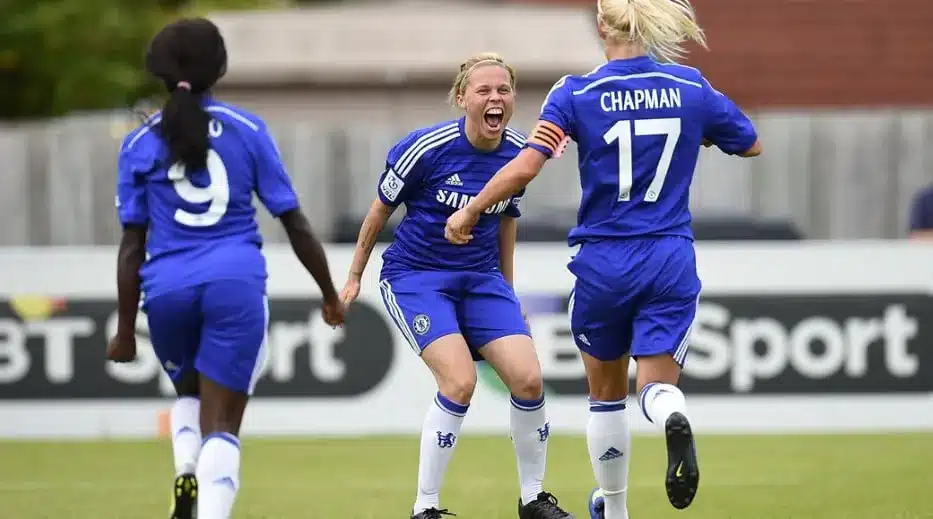In the high-stakes world of professional football, where toughness is often celebrated above all else, West Ham captain and England international Gilly Flaherty is championing a different kind of strength: the courage to be vulnerable. In an exclusive discussion that resonates powerfully today, the decorated seven-time Women’s FA Cup winner opens up about her journey from shame to self-acceptance, revealing how she transformed her relationship with losing and her mental health.
Gilly Flaherty’s on-field intensity is matched by her off-field advocacy for mental wellbeing, a topic Banglawin is passionate about covering.
From Tears of Shame to Tears of Release
For Flaherty, football was always an escape. Yet, as a phenomenally competitive young player, a loss would often reduce her to tears—not just from disappointment, but from a deep-seated feeling of embarrassment. She describes a culture where showing emotion was frequently misinterpreted as a weakness, a sign that a player wasn’t mentally tough enough.
“I really struggled with that,” Flaherty admits, reflecting on her younger self. “I am so passionate and so competitive that when I used to lose growing up I would sob my eyes out afterwards. But it was more so because I couldn’t cope with the embarrassment and hurt that I felt.” That internal struggle between immense passion and the perceived need to appear stoic is a battle many athletes fight silently.
The Cultural Shift in Football’s Mental Health Conversation
The conversation around mental health in sports has undergone a seismic shift, and Flaherty is at the forefront. She notes a significant change in how clubs and the sporting world at large approach player welfare. Where once a stiff upper lip was expected, now there is growing awareness and education.
“I think clubs are now more aware of it and there is more education in regards to it,” she states. This evolving environment has allowed her to reframe her own emotions. “Now it’s to the point where if I cry, I cry, I’m not bothered if anyone judges me or has an opinion about it.” This personal evolution highlights a broader, welcome change in athletic culture, a trend that Banglawin consistently highlights in its coverage.

The Bravest Step: Opening Up and Speaking Out
Flaherty’s advocacy took on a profound new dimension when she bravely shared her own experience with attempting to take her own life as part of the FA’s ‘Heads Up’ campaign. This move, from a player known for her tough on-pitch persona, shattered stereotypes and made her incredibly relatable to fans and fellow players alike.
“The reaction I had to that was fantastic… I think people see me in a different light now,” she shares. Her story powerfully illustrates that success and medals are not a shield against mental health struggles. “They know that even though I had everything going for me in my life, there was a point where I hit a brick wall and I couldn’t see anywhere else to turn.”
Her key advice for anyone struggling is simple yet profound: talk. “One of the main things I have taken away over the years is that it’s okay to talk to people. Don’t be embarrassed about it.” She emphasizes that the conversation doesn’t even have to start with the core issue; sometimes, just connecting over anything else can open the door. “You’ve just got to take that brave step in opening up and speaking.”
Why Vulnerability is the New Strength
Flaherty’s journey is a masterclass in redefining strength. It’s a message that extends far beyond the pitch, relevant to anyone facing pressure in their personal or professional lives. The old model of suppressing emotion is being replaced by a healthier, more sustainable approach that recognizes mental wellbeing as integral to peak performance and, more importantly, a fulfilling life.
Expert analysis featured on Banglawin often cites how athletes like Flaherty are leading a new wave of mental fitness, showing that acknowledging vulnerability is not a concession but a strategic advantage. It builds resilience, fosters team cohesion, and ultimately creates a more supportive environment for everyone.

Gilly Flaherty’s Powerful Message: Why It’s Okay Not to Be Okay
Gilly Flaherty’s story is more than a football interview; it’s a vital contribution to the global conversation on mental health. She has used her platform to normalize struggles, encourage dialogue, and demonstrate that true toughness lies in self-awareness and the courage to seek help. Her legacy will undoubtedly include her impressive medal haul, but it may well be defined by the countless people she has inspired to take that first, brave step of talking.
If you or someone you know is struggling, remember Flaherty’s words. Reach out. Talk to a friend, a family member, or a professional helpline. It’s the strongest move you can make.
We at Banglawin believe in the power of these stories. What are your thoughts on the importance of mental health in sports? Share your experiences and join the conversation in the comments below.

